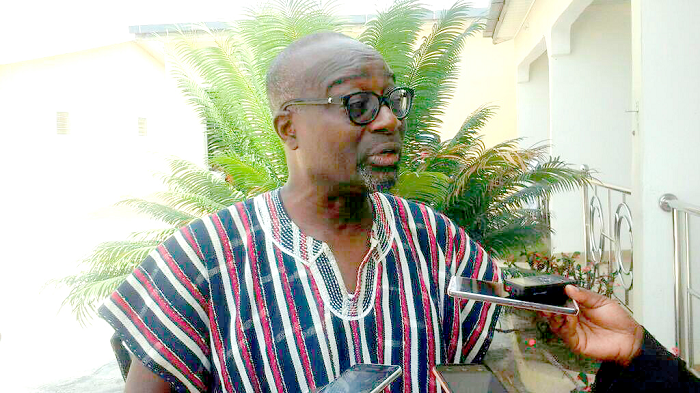
$100 Million required to reclaim ‘galamsey’ lands
Ghana will need at least $100 million to reclaim lands destroyed by illegal mining activities countrywide.
Advertisement
The reclamation process will involve the removal of poisonous substances from the soil, dredging of water bodies and, where possible, removal of pollutants to make the land useful again.
The Lead Advocate of the Multi-sectorial Mining Integrated Project (MMIP), Dr Isaac Karikari, disclosed this at Bole in the Northern Region last Friday during a sensitisation forum for a cross-section of society on the negative impacts of illegal mining activities.
He said the administrators of the project believed that deposits of gold left at the galamsey sites could be processed to raise a substantial part of the funds needed for the reclamation exercise.
Read also: BoG cracks whip on high NPLs - Demands answers from banks
Forum
The forum was organised by the Media Coalition Against Galamsey to engage the public on the dangers of illegal and uncontrolled mining in the group's efforts to help stem the practice.
In attendance were traditional rulers, assembly members, civil servants, community leaders, students, traders, and representatives of other identifiable groups in society.
The coalition comprises major stakeholders in the local media industry in individual and corporate capacities, with an objective of throwing light on illegal mining and related activities to sustain the government's bid to sanitise the local mining industry.
The campaign against illegal mining — popularly called galamsey — is spearheaded by the government through Operation Vanguard, which is formed by personnel of the Ghana Armed Forces, other security services and relevant state institutions.
Reclamation process
Dr Karikari said the reclamation process could only begin after thorough testing of the land at the various mining sites to determine the extent of pollution to assess the effort required in time and financial resources to treat a particular site.
He said the reclamation project had already received offers from the international community with proposals to assist the country.
He insisted, however, that each offer would be examined and scrutinised to ensure Ghana was not short-changed.
It is believed that the galamsey sites have been seriously damaged by poisonous substances such as cyanide and mercury due to the crude methods used to extract gold.
MMIP is a five-year project that seeks to rehabilitate galamsey sites and integrate the youth engaged in the illegal mining business into other legal occupations.
Rehabilitating youth in galamsey
Dr Karikari said about 500,000 youth involved in illegal mining would be engaged and trained to give them alternative livelihoods to compensate for the cancellation of galamsey.
Polluted water bodies
A hydrologist with the Centre for Scientific and Industrial Research (CSIR), Dr Anthony Duah, said many water bodies in the country had been seriously polluted, and their depths reduced by the washing of soil into them.
Convenor
The convenor of the Media Coalition Against Galamsey, Mr Ken Ashigbey, said the activities of Operation Vanguard had been successful so far in the Central, Western, Eastern and Ashanti regions.
The team is expected to visit the Northern, Upper East and Upper West regions too.
Galamsey activities are scattered across the country, with the exception of the Greater Accra and Volta regions.
Chief Adam Tampouri, who chaired the forum, said galamsey was dangerous because of the “lack of care and control of toxic chemicals employed” which compromised the health, safety and welfare of those involved in artisanal mining.




